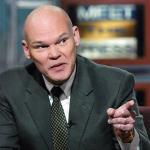It’s (Also) About Governing, Stupid
 Too many political consultants and their clients think only about victory on Election Night and not about what to do after they are in power.
Too many political consultants and their clients think only about victory on Election Night and not about what to do after they are in power.
In just a couple of days, American voters will elect a new Congress, several governors, thousands of state legislators and even more local officials. Predictions suggest that it will be a big day for Republicans and a lousy one for Democrats. Regardless of the partisan outcomes, however, one group---the political consulting industry--- has already won a huge jackpot. But it has come at a price.
Writing recently in The Washington Post, Robert J. Samuelson identified four reasons for “The Dysfunction of American Politics“. Samuelson’s culprits are:
- The increased importance of each party’s “base” in providing the resources to the campaigns of their respective candidates, which in turn forces policy debates to the extremes;
- A decidedly more “moralistic” ideological fervor on the part of those at the far right and far left of our political spectrum, a phenomenon that leads to the demonization of people in opposing camps, which in turn makes compromises on issues almost impossible.
- Ever-present, quarrelsome and sometimes irrational chatter on cable TV and the internet;
- The tendency of candidates to “overpromise”, which leads inevitably to public disappointment and cynicism.
Samuelson argues,
Politicians have always assailed one another. But the totality of these changes has altered the system's character. Many players have an interest in perpetuating disagreements and differences. Advocacy groups and their allies derive psychic rewards (a sense of superiority) and political benefits (more members and contributions) from demonizing their adversaries. Cable TV needs combat, not comity. The impulse is not to govern from the center, which still represents most Americans, but from ‘the base.’
I agree with Mr. Samuelson, but I would add an additional point, one which gets us back to the real winners of this, and every other, campaign season: the political consulting industry.
During the transition between the 1992 Presidential election and Bill Clinton’s inauguration, one of the President-elect’s key advisers, James Carville, was stopped by a reporter and asked if he would be going into the administration. Carville, as only he can do, snarled: “No! I don’t do government!”
With that comment James Carville (now a ubiquitous TV talking head), unwittingly I am sure, highlighted a major ingredient contributing to the “dysfunction of American politics”.
As a political consultant for the past three decades, I have had a growing concern that too many of my colleagues----and their clients---think only about getting to Tuesday night, while not caring the least bit about Wednesday morning. At the end of the classic movie, The Candidate, the victorious “hero” (played by Robert Redford) asks an aide, “What do we do now?” More often than not, I fear the political consultant’s answer is, “I don’t know, and I don’t care.”
Compounding the consultants’ gunslinger mentality is the fact that vast amounts of money are spent on modern political campaigns, a significant portion of which goes to the operatives. If, as some have projected, the 2010 midterm election campaigns end up costing about $3 billion, it is not beyond the realm of possibility that up to $500 million will end up in the pockets of the consultants. “That ain’t chicken feed”, as my grandfather might have said.
Political consulting has provided me with a comfortable life---not as rich as some but a whole lot better than many. So, I am not about to begrudge either the amounts sought or the amounts paid. Nor do I think it is an unsavory way to make a living. But, and this is key, there should be more to the business than simply winning, at any cost, and no matter the consequences.
For several years I taught undergraduates in the Political Communications program at George Washington University. In class, and in conversations with students, I stressed the need to always be mindful of the possible consequences of one’s strategies and tactics. Ethics in our business are not just about refusing bribes and resisting quid pro quos, and ethical behavior goes beyond simply telling the truth. Those are, in fact, minimal standards.
Each and every day, candidates and their advisers should ask themselves, when they get up in the morning and when they go to bed late at night: Is losing this election the very worst thing that can happen? Is what I am doing---or what we are contemplating---likely to hurt our representative democracy?
Ironically, while writing this, I was interrupted by an email message from an old friend, Hal Malchow. Hal was announcing that he is folding up his shop, one of the most successful direct mail and digital communications firms in the country. Hal’s reason for getting out of the business is instructive, and poignant:
…. Politics is not what it was when I started 25 years ago. Advertising has become not just more negative but more vicious and personal. The campaign dialog has become increasingly disconnected from the real problems people face. Frankly, what we say in our ads has often become more distant from the truth….
After Tuesday’s results are in----after both the votes and the profits are counted, let’s hope that those of us whose lives are wrapped up in political process can have a serious conversation about what Robert Samuelson, Hal Malchow and more and more American voters are telling us.